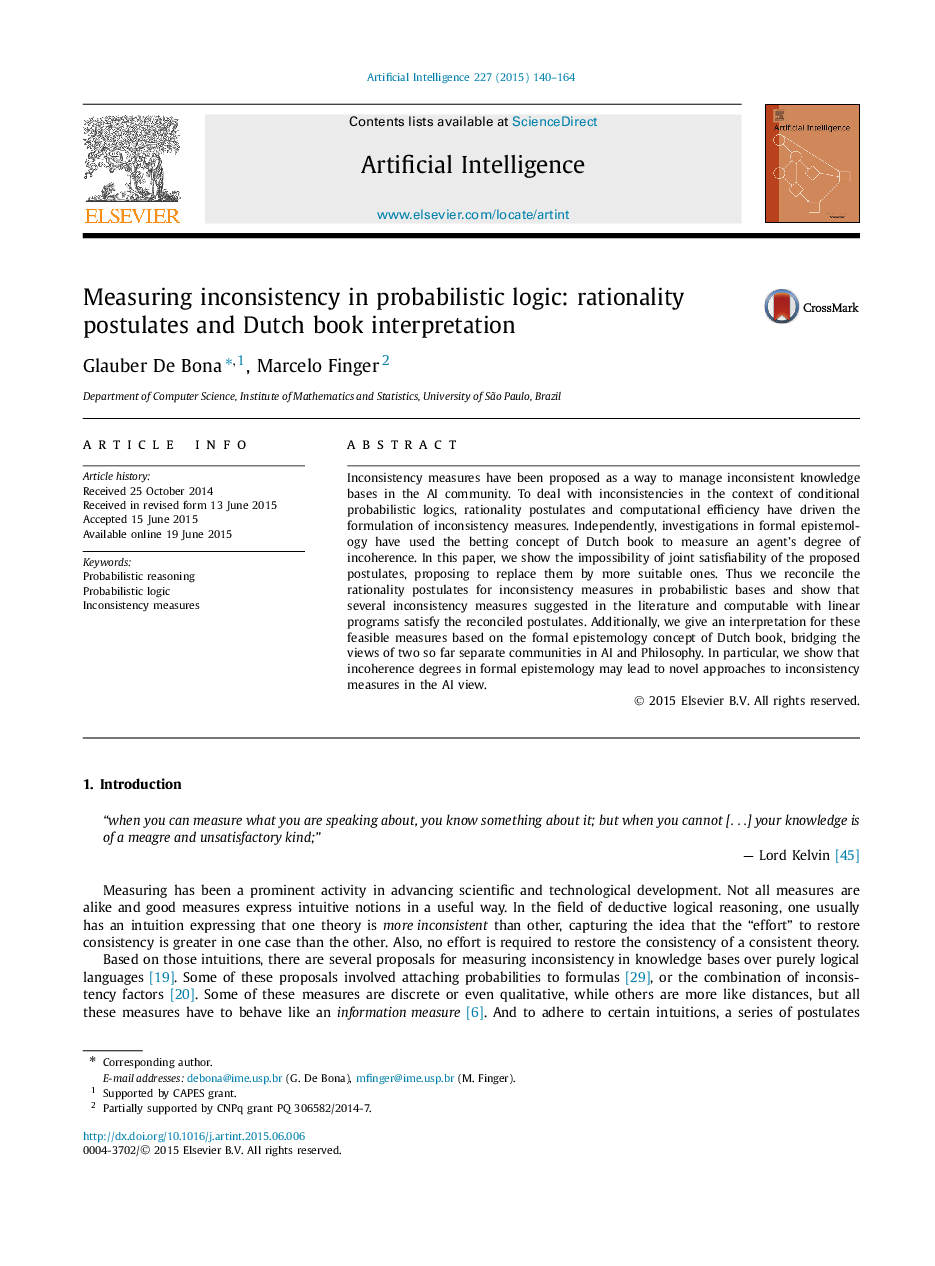| Article ID | Journal | Published Year | Pages | File Type |
|---|---|---|---|---|
| 376819 | Artificial Intelligence | 2015 | 25 Pages |
•Consistency, independence and continuity are incompatible postulates.•Minimal inconsistent sets are not suitable to analyze probabilistic incon-sistencies.•Independence can be weakened considering the underlying consolidation process.•Inconsistency and incoherence measures based on distances and Dutch books coincide.
Inconsistency measures have been proposed as a way to manage inconsistent knowledge bases in the AI community. To deal with inconsistencies in the context of conditional probabilistic logics, rationality postulates and computational efficiency have driven the formulation of inconsistency measures. Independently, investigations in formal epistemol-ogy have used the betting concept of Dutch book to measure an agent's degree of incoherence. In this paper, we show the impossibility of joint satisfiability of the proposed postulates, proposing to replace them by more suitable ones. Thus we reconcile the rationality postulates for inconsistency measures in probabilistic bases and show that several inconsistency measures suggested in the literature and computable with linear programs satisfy the reconciled postulates. Additionally, we give an interpretation for these feasible measures based on the formal epistemology concept of Dutch book, bridging the views of two so far separate communities in AI and Philosophy. In particular, we show that incoherence degrees in formal epistemology may lead to novel approaches to inconsistency measures in the AI view.
